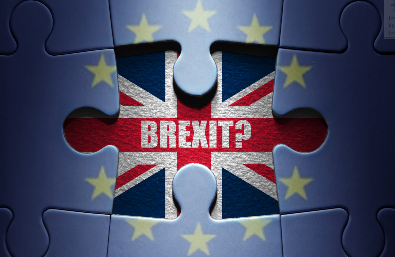
Dalibor Rohac’s columns on Brexit are a must-read. The new one is no exception. In the Washington Post, Dalibor argues that enough is enough, and both the EU and the UK share an interest, now, to go for a Brexit agreement as soon as possible. This is the gist of his argument:
Both the E.U. and the U.K. face many urgent matters, including conflicts in Syria and Ukraine, a looming economic downturn, rising authoritarianism in member states such as Hungary, and long-term challenges posed by an ailing transatlantic partnership and the rise of China. European leaders can’t afford to squander any more time and energy on a country that has its own political priorities.
The U.K. is a distraction. If the British want to focus on defining their post-European future — let them. Europe has already shown ample patience and goodwill: The U.K. was originally supposed to leave on March 29 and has been since granted two extensions. At British request, the withdrawal agreement was renegotiated. The clock has run out.
As for the British, it’s already clear that Brexit entails politically brutal choices. Faced with unpalatable alternatives, British parliamentarians will always prefer to kick the can down the road rather than settling on a clear plan forward. But that’s their problem, not the E.U.’s.
Yet it seems to me that Dalibor is kind of assuming an identity here between the needs of the politicians and those of their constituents. Perhaps the latter are happy to pay the price of this prolonged uncertainty. But why is he assuming the standstill is bad for the politicians? Insofar as Brexit is keeping attention away from economic policies or other internal affairs, it could actually be good for European leaders. When a few months ago the leader of the Italian Northern League, Matteo Salvini, tried to call for an early election in October (he failed at such parliamentary maneuver, but he is still going strong in the country), my first thought was that one of his reasons was somehow to shield himself behind Brexit. He would have campaigned on a relatively Euroskeptic platform, but whatever bad turns the stock market may have taken (as a likely consequence of the markets’ distrust for the policies he’d have promised to his voters) could well be blamed on such momentous events outside his control.
Distractions are a very powerful weapon in politics. Insofar as the English ruling class is concerned, Brexit has already shattered its reputation and jeopardized political parties’ internal cohesion. Perhaps somebody would like to pull the trigger as soon as possible, to see how the world of politics will stabilize and change afterwards. But others may prefer this limbo.

READER COMMENTS
William Connolley
Oct 28 2019 at 11:27am
Seems to me that keeping a bunch of pols snarled up wasting their time on Brexit at least prevents them from breaking other stuff.
Mark Brady
Oct 29 2019 at 3:53am
“Insofar as the English ruling class is concerned, Brexit has already shattered its reputation and jeopardized political parties’ internal cohesion.”
And what precisely is the “English ruling class”? Pray tell.
Mark Brady
Oct 29 2019 at 4:37am
“Europe has already shown ample patience and goodwill: The U.K. was originally supposed to leave on March 29 and has been since granted two extensions. At British request, the withdrawal agreement was renegotiated. The clock has run out.”
Thus writes Dalibor Rohac. Three thoughts come to mind. The European Union is not Europe. (This simple truth cannot be emphasized enough.) The leadership of the EU has its own goals that often do not reflect the wishes of their constituent populations, least of all those of the UK electorate that voted to leave the EU. (And why should we expect that those priorities would always reflect those wishes?) Thus it would be surprising if the EU were to show “ample patience and goodwill.” Which I submit it has not. But then I didn’t expect it to do so.
Thaomas
Oct 29 2019 at 4:04pm
This is a very disingenuous argument. Everyone would like to settle the Brexit issue sooner rather than later on their terms. But some people believe that the best kind of Brexit is none at all or one that preserves as much pre-Brexit freedom of movement of goods, people, and services as possible. Others think the reverse. And withing each position are different views about which tactics (including delay) are most conducive to the outcome they favor.
That is the issue, not how expeditiously to reach a decision.
Comments are closed.